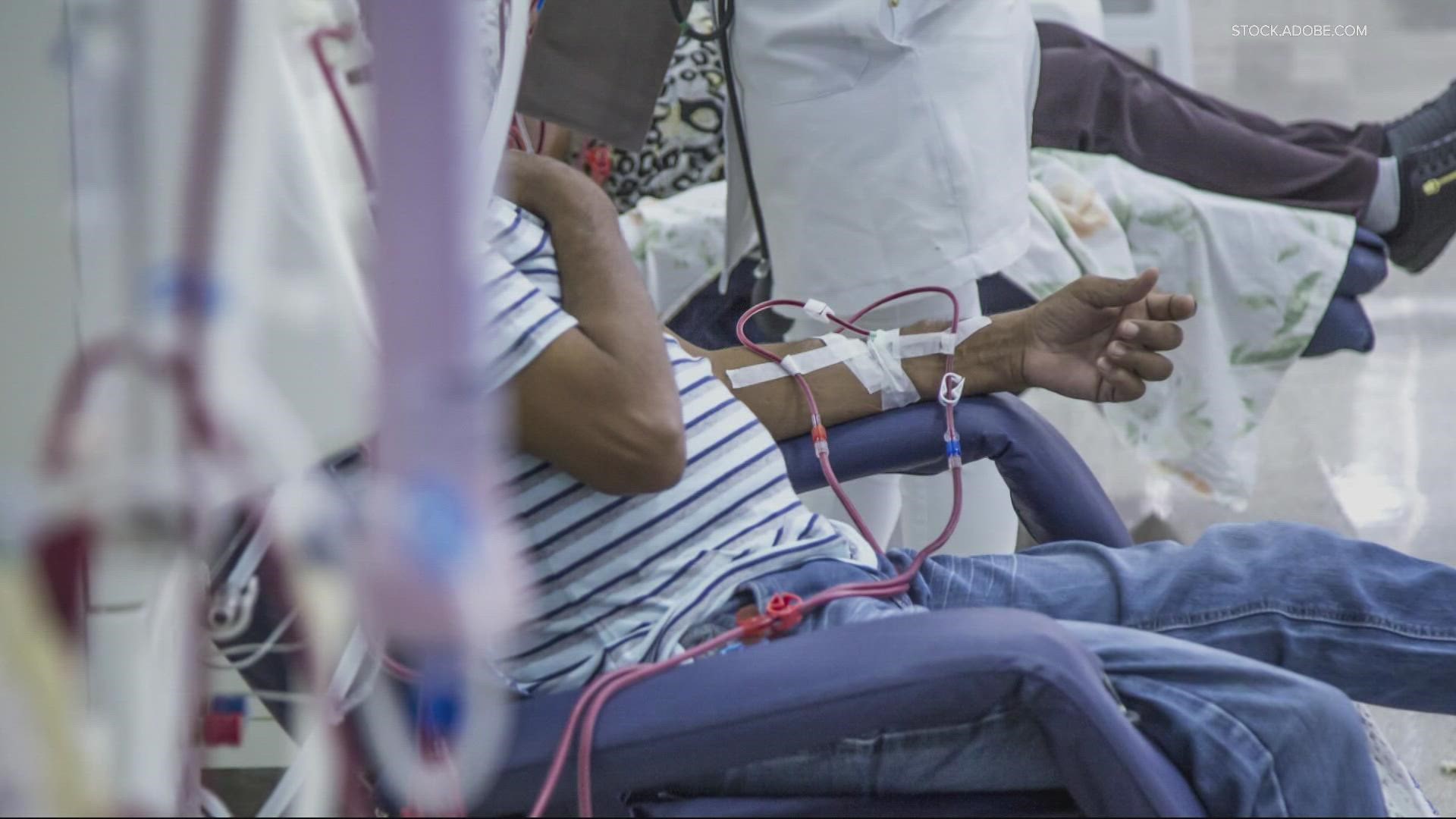PORTLAND, Ore. — Life-saving clinics that provide dialysis treatments are struggling during the pandemic. Low staffing is impacting appointments for patients who need regular treatment.
Fred Wharton in Clackamas started dialysis about three years ago.
"Three times a week, four hours a day," he said of his regular appointments.
Wharton was born with one kidney, which started failing in the last few years. Dialysis treatments help keep him healthy and alive.
"Takes the toxins out of your blood," he explained.
However, the main clinic he went to in Northeast Portland's Hollywood District closed in December because of low staffing. The company that operates it, Fresenius Kidney Care, runs about 2,800 clinics nationwide, and 53 of those are in Oregon and Washington.
Wharton has since visited two other Fresenius clinics, which are also struggling with low staff numbers.
"Which I'm really nervous about, not just for myself, but for older people also," he said.
"There's not an option to not receive a dialysis treatment," said Kathleen Belmonte, chief nursing officer and senior vice president of clinical services on the national level for Fresenius.
She said the pandemic and resulting burnout for staff are taking a huge toll.
"Our nurses are telling us they're exhausted," Belmonte told KGW. "It is emotionally draining. It's stressful, so it has been a hard two years."
"It is a struggle for both patients and staff," added Casey Stowell, regional vice president for Fresenius in the Pacific Northwest.
Stowell said of the more than 50 regional clinics, four are temporarily closed because of staffing shortages. The omicron variant of the coronavirus also means more patients and staff members are getting sick and can't come in as needed.
"It's becoming even more challenging day to day," Stowell said.
The staffing shortage issue reflects a bigger, national trend. Data from the American Hospital Association show hospital job vacancies increased by 30% in 2020 over 2019.
Long term, an analysis by labor market data company EMSI found there will be a critical shortage of 3.2 million health care workers by 2026.
"We need people to apply and come work for an industry that saves the lives of people every day," Stowell said.
"At the end of every day, you go home and know you made a difference in someone's life," Belmonte added.
Fresenius is working to combat the ongoing workforce shortage in kidney care. It has a nurse residency program to help with tuition and is actively recruiting nursing students in universities around the country.
For existing staff, the company is working to add benefits toward education and mental and physical health.
"Recruitment and retention so we can solve the equation at both ends," Belmonte said.
Stowell said the field also offers a path to career growth.
"I started as a secretary at a clinic 21 years ago," she said. "They can be a clinical manager, they can be a regional vice president someday."
In the meantime, patients like Fred Wharton hope clinics get more support soon, knowing that lives are on the line.
"Eventually people are going to start not doing well because of this," he said. "I don't blame the staff...[They're] doing the best they can."

